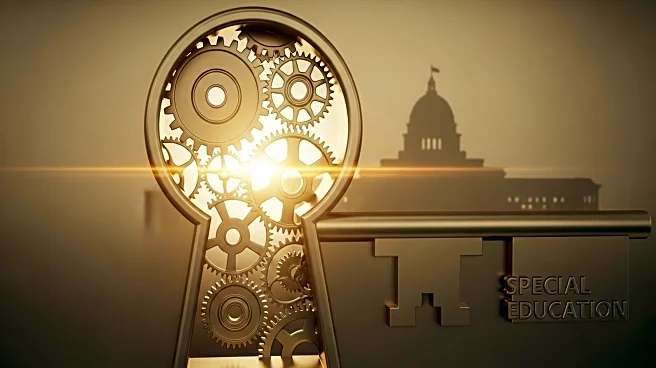What is the story about?
What's Happening?
The Trump administration's recent shutdown and subsequent firings have significantly affected special education programs, according to sources. Skye Perryman, CEO and President of Democracy Forward, discussed the issue on ABC News Live, highlighting how the shutdown is diminishing resources and support for special education. The firings have led to a reduction in staff and resources, which are crucial for maintaining the quality and accessibility of special education services. This development has raised concerns among educators and parents about the future of these programs and the potential long-term effects on students who rely on specialized educational support.
Why It's Important?
The impact on special education programs is significant because these services are essential for students with disabilities to receive equitable education. The reduction in resources and staff could lead to decreased access to necessary educational support, potentially hindering the academic progress and development of affected students. This situation underscores the importance of stable funding and support for special education, as disruptions can have lasting effects on vulnerable populations. The broader implications include potential legal challenges and advocacy efforts to restore and protect these vital services.
What's Next?
As the situation unfolds, stakeholders such as educators, parents, and advocacy groups are likely to push for policy changes and increased funding to mitigate the impact of the shutdown. There may be calls for legislative action to ensure that special education programs are adequately supported and protected from future disruptions. Additionally, the issue could become a focal point in political debates, with various parties advocating for different approaches to funding and managing special education services.
Beyond the Headlines
The shutdown's impact on special education highlights broader issues related to government funding priorities and the vulnerability of essential services during political and economic disruptions. It raises ethical questions about the responsibility of government to protect and prioritize services for marginalized groups, including students with disabilities. This situation may also prompt discussions about the need for more resilient systems that can withstand political and economic challenges without compromising service delivery.















